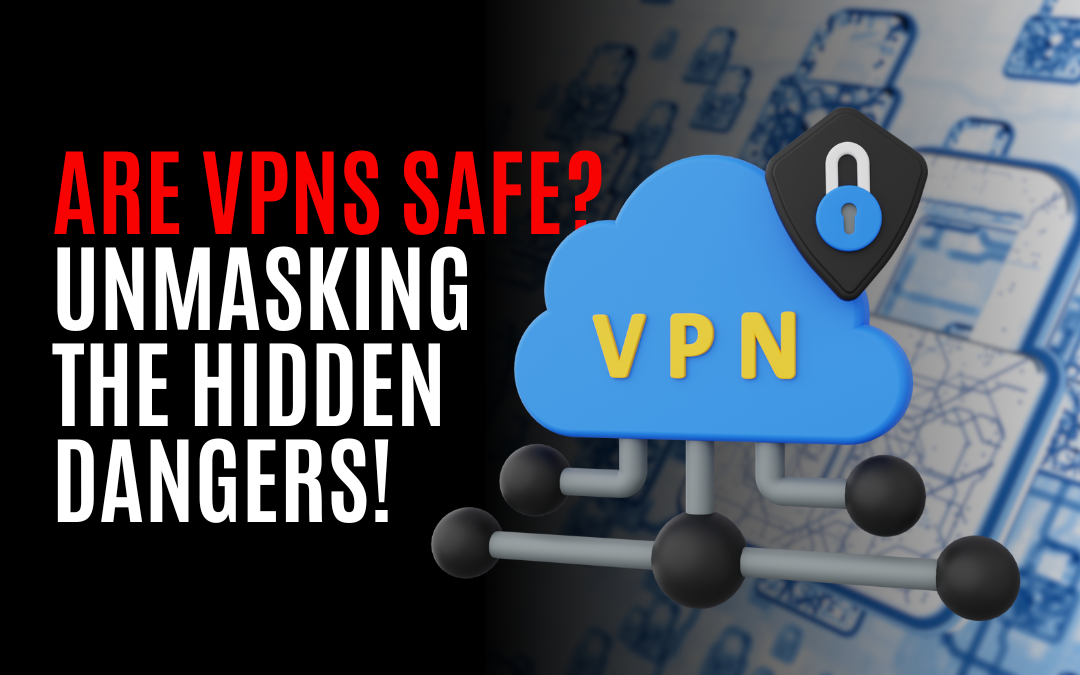Hey there, tech enthusiasts! Today, we’re diving deep into the world of Virtual Private Networks (VPNs) and how to keep your digital life secure while using them. So, grab your favorite beverage, and let’s unravel the mysteries of VPN safety together!
Understanding VPN Safety: A Deep Dive
1. The Heart of the Matter: VPN Server Security Imagine a fortress that guards all your secrets—well, that’s your VPN server. If this fortress falls into the wrong hands, so does your data. To prevent this, it’s crucial that VPN servers use top-notch encryption like AES-256 and maintain a strict no-logs policy. This way, even if someone sneaks past the gates, there’s nothing to find!
2. The Strength of the Shield: Encryption and Protocols Using a VPN with weak armor (think outdated protocols like PPTP) is like going into a sword fight with a paper shield! Opt for modern, robust protocols like OpenVPN or IKEv2/IPSec to ensure your data is as safe as a treasure in a dragon’s lair.
3. Plugging the Leaks: DNS and IP Leak Protection Ever thought you were invisible but left footprints in the mud? That’s what DNS and IP leaks do to your online presence. Ensure your VPN has solid leak protection to keep your online activities and location hidden from prying eyes.
4. The Silent Watcher: Logging Policies A VPN that keeps tabs on you is like a friend who can’t keep a secret. Choose a VPN provider that promises a strict no-logging policy, ensuring your digital whispers remain unheard.
5. Keeping the Gates Updated: Software Vulnerabilities Just like keeping your castle’s defenses updated against new siege tactics, keeping your VPN software updated is crucial. Regular updates help patch up any vulnerabilities that could let attackers slip through.
6. Guarding Against Eavesdroppers: MITM Attack ProtectionUsing public Wi-Fi without protection is like shouting your secrets in a crowded market. A robust VPN with secure handshake protocols acts like a discreet messenger, keeping your data safe from eavesdroppers.
7. Sealing the Envelope: End-to-End Encryption Gaps While VPNs protect your data en route to their servers, the journey might still be perilous from there to its final destination. Pairing your VPN with HTTPS ensures that your data remains encrypted from start to finish.
Because That’s Where the Money Is
When you use a Virtual Private Network (VPN), one thing to be aware of is that the endpoints, or the servers where your internet traffic exits, might be monitored. While VPNs are great for hiding your online activities from your ISP and others watching your local network, they essentially transfer your trust from your ISP to the VPN provider. If these exit points are not secure, hackers or even government agencies could intercept your data. This means things like your login details, financial info, or personal messages could be at risk of being seen by the wrong eyes.
The famous bank robber Willie Sutton once quipped that he robbed banks “because that’s where the money is.” This same principle applies to why cybercriminals target VPN exit points. Since thousands of people often route their internet activities through these exit servers, they become a lucrative target for hackers. These exit points aggregate a vast amount of valuable data from various users, all condensed into a single transmission channel. Therefore, if a hacker can breach a VPN’s exit point, they stand to gain access to a treasure trove of information, ranging from personal details to sensitive communications, and financial transactions. It’s like hitting a jackpot, which makes VPN exit points a prime target for malicious activities.
Additionally, even though many VPN providers say they don’t keep logs of your activities, it’s hard to be 100% sure they’re sticking to that promise. Some providers have been caught logging user data despite saying they don’t. In some places, laws require VPN providers to monitor and retain user data, which can be a concern, especially if you’re using a VPN to stay secure in a country with strict surveillance laws or for sensitive activities like whistleblowing. So, it’s super important to do your homework and select a trustworthy VPN provider to help ensure your online privacy is genuinely protected.
Personally, I have set up my own VPN server at the office and never use public VPNs. Let me know if you’d like to set one up, too.
My Favorite Ways to Fortify Your VPN Experience
- Choose Wisely: Always opt for VPN providers known for their strong encryption, no-logs policy, and additional features like kill switches and DNS leak prevention.
- Stay Updated: Regularly update your VPN software to protect against new threats.
- Audit for Assurance: Consider VPN services that undergo regular security audits to verify their security and reliability.
- Double Down on Encryption: Use HTTPS and other encrypted communication tools to add an extra layer of security.
By understanding these critical aspects and taking proactive steps to manage them, you can significantly enhance your security and privacy while surfing the internet.
Quick Checklist for VPN Safety:
- [ ] Select a VPN with strong encryption and secure protocols.
- [ ] Ensure the VPN has a strict no-logging policy.
- [ ] Regularly update VPN software.
- [ ] Use HTTPS in conjunction with your VPN.
- [ ] Perform periodic checks for DNS or IP leaks.
Remember, folks, in the digital world, being forearmed with knowledge and the right tools is key to keeping your private life truly private. Stay safe, stay secure, and keep enjoying the vast world of the internet without worry!
Got questions or insights about VPN safety? Drop by CraigPeterson.com and let’s keep this conversation going. Until next time, keep your digital shields up and continue to navigate the cyber seas safely!

